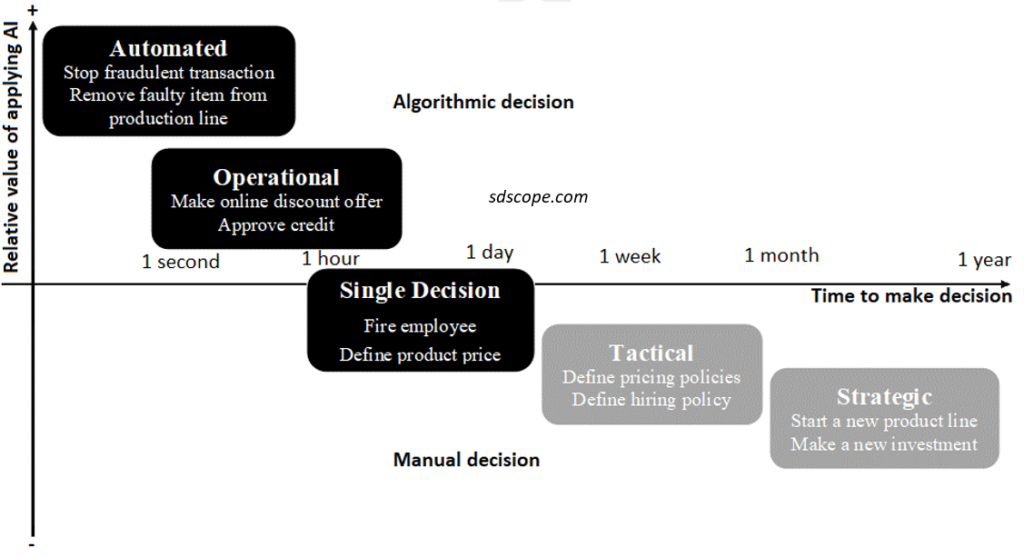Machine learning is expensive to implement in terms of skill, time and computing resources. So it should not be used for trivial tasks such as extracting a subset of customers from a database. It is narrow in scope, i.e., it performs one task or one set of tasks only, but often exceeds human performance in the specific task, e.g., machine learning outperforms humans in image recognition tasks significantly. Machine learning is valuable in the following scenarios:
- Performing the same decision very quickly and repeatedly, for example, determining whether a transaction is fraudulent or not
- Problems that would otherwise require a lot of hand-tuning or long lists of rules, for example, spam detection, pricing an item based on tens of features
- Problems that either are too complex for traditional approaches or have no known algorithm, for example, speech recognition, image detection
- Fluid situations, for example, in spam detection and sentiment analysis problems the contents of the messages are always changing
- Getting insights about complex problems and large amounts of data, for example, identify key factors driving propensity to buy, understand trends in email spam
Figure 1 below shows a temporal perspective of the value of, and when to apply, artificial intelligence/machine learning.

Adapted from Ingo Mierswa: https://ingomierswa.com/2017/05/09/what-artificial-intelligence-and-machine-learning-can-do-and-what-not




